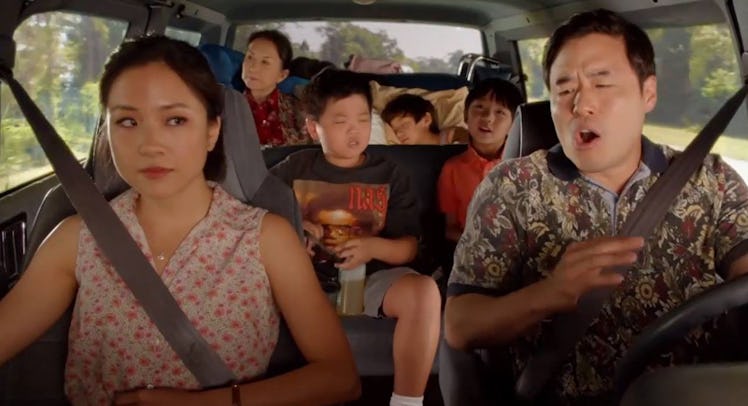Can Getaways Help Urban Families Make More Time For Each Other?
The company has been quietly creating Walden-like escapes outside of New York City or Boston.

Here’s what kids learn about Henry David Thoreau: In 1845, he unplugged from his daily grind to commune with nature in solitude. Moving into a cabin in Concord, Massachusetts in pursuit of a simpler life, he wrote, “I went to the woods because I wished to live deliberately.” Here’s what they don’t learn: Walden Pond is an hour away from Thoreau’s townhouse — if you jog a little —and that land, now covered in trees, was open farmland. Basically, he was hanging out in a neighbor’s backyard. But it was still a powerful gesture and an important moment in literary history. Getting away mattered even though the getaway itself was a small thing.
Despite the radical proliferation of technology in the century and a half since Thoreau wrote those words, it’s never been easier to get out of town for a bit of deliberate living. And it’s getting easier. A company called Getaway has been quietly creating Walden-like escapes outside of New York City or Boston. These small homes are built in part for families and entirely for quality time. They’ve made it possible to pull a Thoreau with minimal planning.
“About 75 percent of what we love about a vacation is that we’re not at work and we’re with the people we love,” says Getaway founder Pete Davis. “So we decided to make something that was centered on bringing that into the simplest setting, which is nature.”
Davis describes the Getaway experience as being in line with camping, minus a lot of camping’s pain points. You’re embedded in nature, but there are no tents or sleeping bags. Instead, there are beds and a refrigerator. There’s no wi-fi, but there are s’mores and card games. For those who want to commit deeply to some very short-term cord-cutting, there’s even a cell phone lockbox to stash your connected devices. Davis wants to help people turn down the volume on their lives. At $100 to $130 per night, that experience isn’t cheap, but it is possible.
“Taking a trip of this sort makes it easier to tune into your family, but there’s also a therapeutic component to stripping away the excess of life,” he says. “It’s just you, the woods, and a fridge full of groceries. What now?”
Getaway’s Boston rentals aren’t terribly far from Thoreau’s Walden Pond, and the pastoral parallel isn’t lost on Davis. “Just like Thoreau, we can do your laundry nearby. His mom always did his; he wasn’t really roughing it.”
For parents especially, roughing it isn’t really the point. Experience is the point.
“Family holidays are valued by children, both in the moment and for long afterward in their memory,” says psychologist and author Oliver James. “Holidays remove us, physically, from our highly pressured everyday lives where everyone’s focused on meeting targets. They are times when everyone can relax and be playful together. [It’s all about] talking nonsense with your parents, sharing an ice cream, and moments of time in which your interests are genuinely taken into account.”
Kids benefit from unstructured playtime; it literally sets them up for greater social success as adults. Flexible downtime as a family — especially in nature — not only lets Dad decompress from work, but lets children become who they are. Taking them into the woods for a weekend sets the tone that they are to keep themselves occupied, a valuable life skill in a time generally ruled by social media and connected devices.
The long and the short of it is that companies like Getaway — and there are an increasing number of them — sell the idea of living deliberately. There’s a market for that, and not just for bearded iconoclasts. Deliberately living makes sense for families precisely because it does represent a higher logistical hurdle. The package and sale of simplicity is nothing new–the middle and upper middle class have been buying that for decades–but the quality of the product is improving. In an era when parents are stretched thin and kids may be stretched even thinner, that’s terrific news.
Does going to the woods solve the problems that effect adults back in civilization? Of course not. But it can offer a reprieve and a little distance. That’s lovely — so long as you can go home to do your laundry.
This article was originally published on